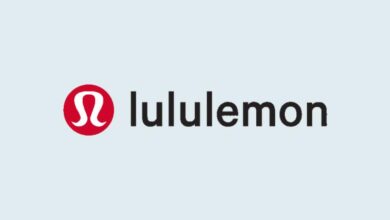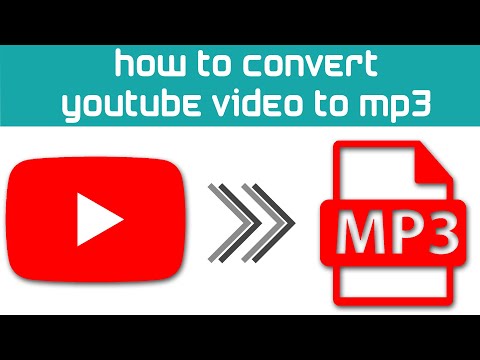7 Best Python Web Scraping Library To Master Data Extraction:
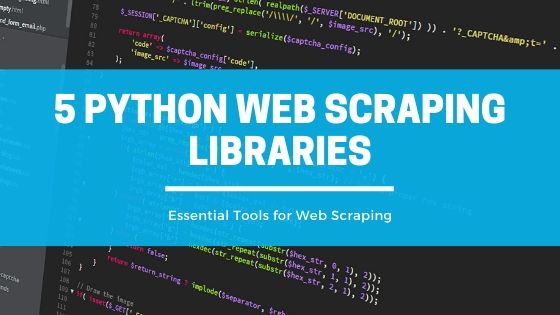
Are you struggling to find the best Python web scraping library for your next data science project? Individuals and businesses can discover what they can achieve with a decent amount of data by using web scraping. Web data can be utilized for data analysis, machine learning, and even to outperform and outcompete rivals.
Why are Python libraries for Web Scraping Important?
Python web scraping library is essential due to their role in simplifying and streamlining the process of extracting valuable information from websites. These libraries, such as BeautifulSoup, Requests, and Scrapy, provide pre-built functions and tools that handle common tasks like making HTTP requests, parsing HTML, and navigating document structures. Their abstraction significantly reduces the complexity of web scraping, making it accessible to both beginners and experienced developers.
Python libraries save time and effort by offering reusable code modules, fostering efficient development. They empower individuals to harness the power of web data without the need for extensive low-level programming, promoting accessibility and productivity.
Why only a few libraries and Do You need to learn every library?
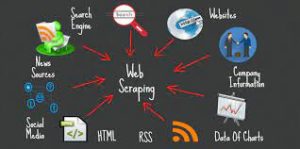
Numerous web scraping solutions are available. But, you can scrape practically any website with just a few of them. This is not an impartial guide. We’ve made the decision to highlight our top five favorite Python web scraping libraries. When taken as a whole, they cover all the essential ground and provide ample documentation.
No, but since requests are the means by which you interact with websites, everyone will require them. The rest are contingent upon your use case. Here’s a general guideline:
- At a minimum, you ought to become familiar with BeautifulSoup or lxml. Select the one that makes the most sense to you (more on this below).
- If you must scrape websites with data hidden by JavaScript, learn about Selenium.
- Instead of just scraping a few pages here and there, learn Scrapy if you need to develop a real spider or web crawler.
The selection of seven libraries in the comparison is not exhaustive but highlights key tools widely used in Python web scraping. The choice of the library depends on project requirements. Learning every library is unnecessary; focusing on those aligned with project needs suffices. BeautifulSoup and Requests suit beginners for simple tasks. Selenium is crucial for dynamic content, while Scrapy scales for large projects. Lxml excels in parsing efficiency. MechanicalSoup simplifies form handling. Adapt your learning based on the complexities of your web scraping tasks, making your knowledge more targeted and efficient
7 Best Python Libraries For Web Scraping:
Python’s ecosystem offers a rich array of libraries and tools that cater to every facet of web scraping. Whether you’re a novice or an experienced scraper, these tools will undoubtedly enhance your efficiency and effectiveness in the fascinating world of web data extraction. As you embark on your web scraping journey, remember to wield these tools responsibly and ethically, respecting the digital boundaries set by website administrators. Happy scraping!
1. Beautiful Soup: is a powerful Python Web Scraping Library and user-friendly tool for parsing HTML and XML documents. Its ease of use and forgiving nature make it a popular choice for web scraping tasks, especially for projects that don’t involve heavy JavaScript interactions or require extensive web crawling capabilities.
In summary, Beautiful Soup is a powerful and user-friendly tool for parsing HTML and XML documents. Its ease of use and forgiving nature make it a popular choice for web scraping tasks, especially for projects that don’t involve heavy JavaScript interactions or require extensive web crawling capabilities.
2. Selenium: this is a powerful tool for web scraping, particularly when dealing with dynamic content and JavaScript-heavy websites. However, its resource usage and learning curve should be considered, and users may want to evaluate it against the specific requirements of their scraping projects.
Using APIs to build functional or acceptance test cases with the Selenium web driver is the most popular method of integrating Selenium with Python.
3. Scrapy: is a powerful and efficient web scraping framework suitable for medium to large-scale scraping projects. Its high-level abstraction, asynchronous support, and modularity make it a popular choice among developers, but its learning curve and potential overhead for smaller projects should be considered.
A built-in Selectors feature in this Python library makes it possible to handle queries quickly and asynchronously while also extracting data from websites. Scrapy adjusts its crawling pace automatically through the use of auto-throttling. It offers developer accessibility as well.
4. Requests is a powerful and widely used library for making HTTP requests in Python. Its simplicity and versatility make it suitable for a wide range of applications, but users should be aware of its synchronous nature and consider additional tools or libraries for advanced use cases.
This is extremely helpful for web scraping since the primary step in any web scraping process is to submit HTTP requests to the website’s server to extract the data displayed on the desired web page.
5. Lxml is a powerful Python Web Scraping Library and efficient Python library for processing XML and HTML documents. It combines the strengths of both libxml2 and libxslt, providing high-performance parsing and manipulation capabilities. Lxml is widely used for web scraping, data extraction, and XML processing tasks due to its speed and feature-rich functionality.
It supports XPath and CSS selectors for navigating document structures and offers a flexible ElementTree API. Lxml is known for its memory efficiency, making it suitable for large documents. Its integration with other libraries like Requests and Beautiful Soup makes it a popular choice for developers working on projects that involve parsing and manipulating XML or HTML content.
6. Urllib is a Python library for working with URLs, providing modules for fetching data across the web. It includes submodules such as urllib.request for opening and reading URLs, urllib.parse for parsing URLs, and urllib.error for handling exceptions. Part of the Python standard library, Urllib simplifies common tasks like making HTTP requests, handling query parameters, and managing URL components. While it lacks some advanced features of third-party libraries, Urllib is a reliable and straightforward tool for basic web-related operations, making it a go-to choice for simple web scraping tasks in Python.
7. MechanicalSoup is a Python library that simplifies web scraping by combining the capabilities of Requests and BeautifulSoup. Built on top of these two libraries, MechanicalSoup provides a convenient interface for interacting with websites, handling forms, and parsing HTML content. It automates the process of filling out and submitting web forms, making it especially useful for scraping dynamic websites. With its intuitive API, developers can perform common web scraping tasks more efficiently. MechanicalSoup is known for its ease of use and seamless integration of form submission and HTML parsing functionalities, making it a valuable tool in the web scraping toolkit.
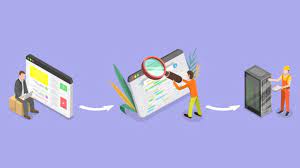
A Quick Overview:
Python offers a rich ecosystem of web scraping libraries, each catering to different needs. Here are seven of the best Python web scraping libraries, along with brief explanations:
- Beautiful Soup:
- Purpose: HTML and XML parsing.
- Strengths: Simplifies navigating and searching HTML/XML documents, making it easy to extract relevant information.
- Requests:
- Purpose: Making HTTP requests.
- Strengths: Provides a simple interface for sending HTTP requests and handling responses, a foundational tool for web scraping.
- Selenium:
- Purpose: Browser automation, handling dynamic content.
- Strengths: Automates interactions with web pages, allowing the scraping of content generated by JavaScript.
- Scrapy:
- Purpose: Web crawling and scraping framework.
- Strengths: Offers a structured approach to building spiders for large-scale scraping tasks, with built-in support for handling common challenges.
- Lxml:
- Purpose: HTML and XML parsing, similar to Beautiful Soup.
- Strengths: Known for its speed and efficiency, often used in conjunction with other libraries for parsing and scraping.
- Urllib:
- Purpose: URL handling and fetching data.
- Strengths: Part of the Python standard library, providing basic functionality for making HTTP requests.
- Requests-HTML:
- Purpose: HTML parsing and web scraping.
- Strengths: Extends the functionality of Requests by adding HTML parsing capabilities, allowing users to extract information from HTML documents more easily.
Common Strengths:
- Open Source: All these libraries are open-source, fostering collaboration and continuous improvement.
- Community Support: Benefit from active communities, ensuring ongoing development, bug fixes, and community-driven enhancements.
- Versatility: While each library has a primary purpose, they can often be combined to address diverse web scraping challenges.
Choosing the Python Web Scraping Library depends on the specific requirements of the scraping task, the website’s structure, and the level of control and customization needed by the developer.
Comparison Between Best Web Scraping Tools Python:
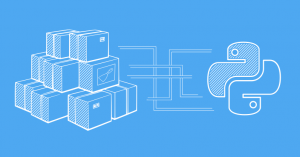
Comparing the best web scraping tools in Python involves considering factors such as ease of use, flexibility, scalability, and specific features. Here’s a brief comparison of some popular tools:
- Beautiful Soup:
- Strengths: HTML and XML parsing, simplicity.
- Use Cases: Small to medium-scale scraping, particularly for parsing static content.
- Requests:
- Strengths: Making HTTP requests, simplicity.
- Use Cases: Foundational tool for making requests; often used in conjunction with parsing libraries like Beautiful Soup.
- Selenium:
- Strengths: Browser automation, handling dynamic content.
- Use Cases: Scraping websites with JavaScript-driven content, testing, and complex interactions.
- Scrapy:
- Strengths: Web crawling framework, scalability.
- Use Cases: Large-scale scraping projects, structured data extraction, and handling complex scenarios.
- Lxml:
- Strengths: Efficient HTML and XML parsing.
- Use Cases: Parsing large documents, often used in conjunction with other libraries for web scraping.
- MechanicalSoup:
- Strengths: Simplifying interaction with websites, and form submission.
- Use Cases: Automated form handling, scraping websites with forms.
Considerations:
- Ease of Use: Beautiful Soup and Requests are beginner-friendly. Selenium may have a steeper learning curve due to browser automation.
- Scalability: Scrapy is designed for large-scale scraping, making it suitable for extensive projects.
- Dynamic Content: Selenium excels in handling dynamic content generated by JavaScript.
- Parsing Efficiency: Lxml is known for its speed and efficiency in parsing large documents.
Choosing a Tool:
- Project Scope: Consider the size and complexity of your scraping project.
- Learning Curve: Evaluate the learning curve based on your team’s expertise.
- Browser Interaction: Use Selenium for dynamic content or browser interactions.
- Structured Data: Scrapy is well-suited for structured data extraction.
Ultimately, the Python Web Scraping Library on the specific requirements and constraints of your web scraping project. Developers often use a combination of tools to leverage the strengths of each for a more robust solution.
See Also:
- Unveiling the Distinctions: Web Crawler vs Web Scrapers
- How to Make Money with Web Scraping Using Python
- How to Type Cast in Python with the Best 5 Examples
- Best Variable Arguments in Python
- 5 Best AI Prompt Engineering Certifications Free
- 5 Beginner Tips for Solving Python Coding Challenges
- Exploring Python Web Development Example Code
- “Python Coding Challenges: Exercises for Success”
- ChatGPT Prompt Engineering for Developers:
- How to Make AI-Generated Video|AI video generator
- 12 Best Python Web Scraping Tools and Libraries with Pros & Cons




